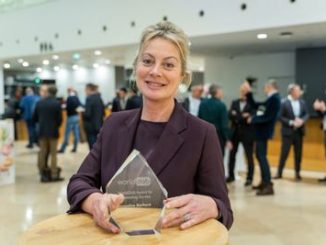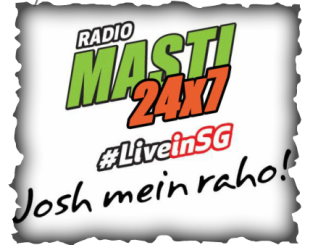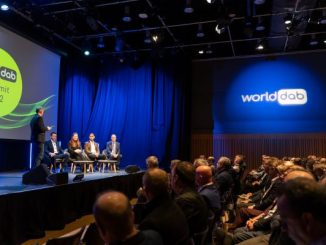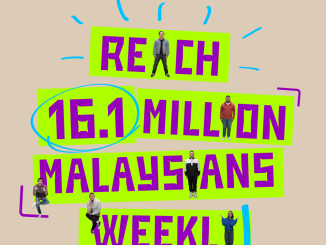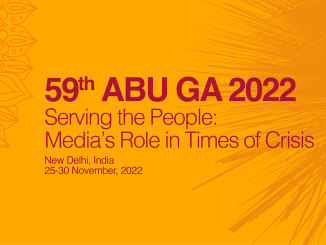The GfK Radio Audience Measurement Survey (RAM) Wave 2, 2022 reported a new high for Malaysian radio as listenership reached almost 97.2% of individuals in Peninsular Malaysia, equivalent to a high of 21.6 million weekly listeners, marking a phenomenal increase of 300,000 from the previous survey. From this, Astro Radio continued its stronghold as the No. 1 local radio with 16.1 million weekly listeners or 74.6% of 21.6 million available radio listeners, strengthening its leadership as the radio operator with the highest number of listeners in Malaysia.Astro Radio’s increased reach in radio listenership is underpinned by 18.4 million average digital radio streams, 26.6 million social media followers, 177.4 million video views, and 75.1 million monthly average Facebook post reach.Astro Radio brands continued to lead as No. 1 across all languages: Hitz FM, the No. 1 English brand; ERA, the No. 1 Malay brand; MY, the No. 1 Chinese brand; and RAAGA, the No. 1 Tamil brand. Astro Radio Malay brands recorded a reach 9.7 million listeners equivalent to 69.0% reach, English brands achieving 3.7 million listeners equivalent to 85.6% reach, while Chinese brands amassed 3.5 million listeners translating to 70.7% reach and the Tamil radio brand marking 1.6 million listeners equivalent to 86.1% in reach.
With 2.4 million weekly listeners, Hitz FM achieved an increase in the highest ‘Exclusive Audience’ for English brands at 356,000 listeners, the Highest Breakfast segment for English brands with 1.1 million listeners and the Highest Drive segment for English brands with 1.2 million listeners.
Mix FM recorded an increase to 1.3 million weekly listeners, with the Breakfast segment increasing to 617,000 while the Drive segment increased to 636,000 listeners.
Lite FM charted an increase in weekly listeners to 855,000 with Breakfast and Drive segments respectively increasing to 406,000 and 393,000 listeners
ERA, also Malaysia’s No. 1 radio brand, recorded weekly listenership of 5.3 million, and continued to achieve Malaysia’s highest weekly reach on radio amongst young Malay listeners between the ages of 10 to 29, with 2.7 million listeners. The Breakfast show remained No. 1, recording 2.8 million listeners, and the ERA Drive Show remained the highest with 2.4 million listeners. ERA also achieved an increase for the Highest Exclusive Audience amongst all radio brands to 1.0 million.
SINAR, remained Malaysia’s second most-listened-to brand overall and the No. 2 Malay-language radio brand in Malaysia, with a recorded weekly listenership of 5.0 million weekly listeners. SINAR Breakfast segment increased to 2.6 million while Drive segment marked 2.3 million weekly listeners respectively. SINAR also recorded an increase in Exclusive Audience to 865,000.
GEGAR, Malaysia’s No. 1 radio brand in the East Coast, recorded a reach of 2.1 million weekly listeners consisting of approximately 39% from Kelantan, 20% from Pahang, 23% from Terengganu and 17% from the West Coast.
ZAYAN recorded weekly listenership of 321,000 with the Breakfast segment increasing to 172,000 listeners while the Drive segment garnered 151,000 listeners.
Weekly listenership on MY was recorded at 2.7 million weekly listeners with the Breakfast and Drive segments achieving the highest number of listeners across Chinese radio brands with 1.6 million and 1.6 million respectively. MY also recorded an increase in its Exclusive Audience to 728,000.
MELODY increased its weekly listenership to 1.2 million weekly listeners, with Breakfast and Drive shows increasing to 658,000 and 634,000 listeners respectively.
GOXUAN achieved an increase in its weekly listeners to 244,000. The Breakfast segment recorded an increase to 115,000 listeners while the Drive segment recorded 102,000 listeners. GOXUAN also marked an increase in its Exclusive Audience to 50,000.
RAAGA, Malaysia’s No. 1 Tamil radio brand recorded a weekly listenership of 1.6 million, where the Breakfast and Drive segments recorded 863,000 and 879,000 listeners each.
The survey was carried out over 6 weeks with a mix of traditional radio diaries (75%) and e-diaries (25%) distributed to 6,000 unique individuals across Peninsular Malaysia to capture their listening habits. 21 commercial radio brands subscribed to this wave and Astro Radio secured 7 positions in the Top 10 brands ranking.Data source: GfK Radio Audience Measurement (RAM), Wave 2 2022 | Facebook Page Reach: Facebook Business Manager (Aug – Oct 2022) | Digital Streams: Radioactive (Aug – Oct 2022) | Website Unique Visitors/Page Views: Google Analytics (Aug – Oct 2022) | Video Views: Facebook Creator Studio, CrowdTangle, YouTube (Oct 2022) | Total Social Media Followers: Facebook, Instagram, Twitter, YouTube, TikTok (Oct 2022) […]
